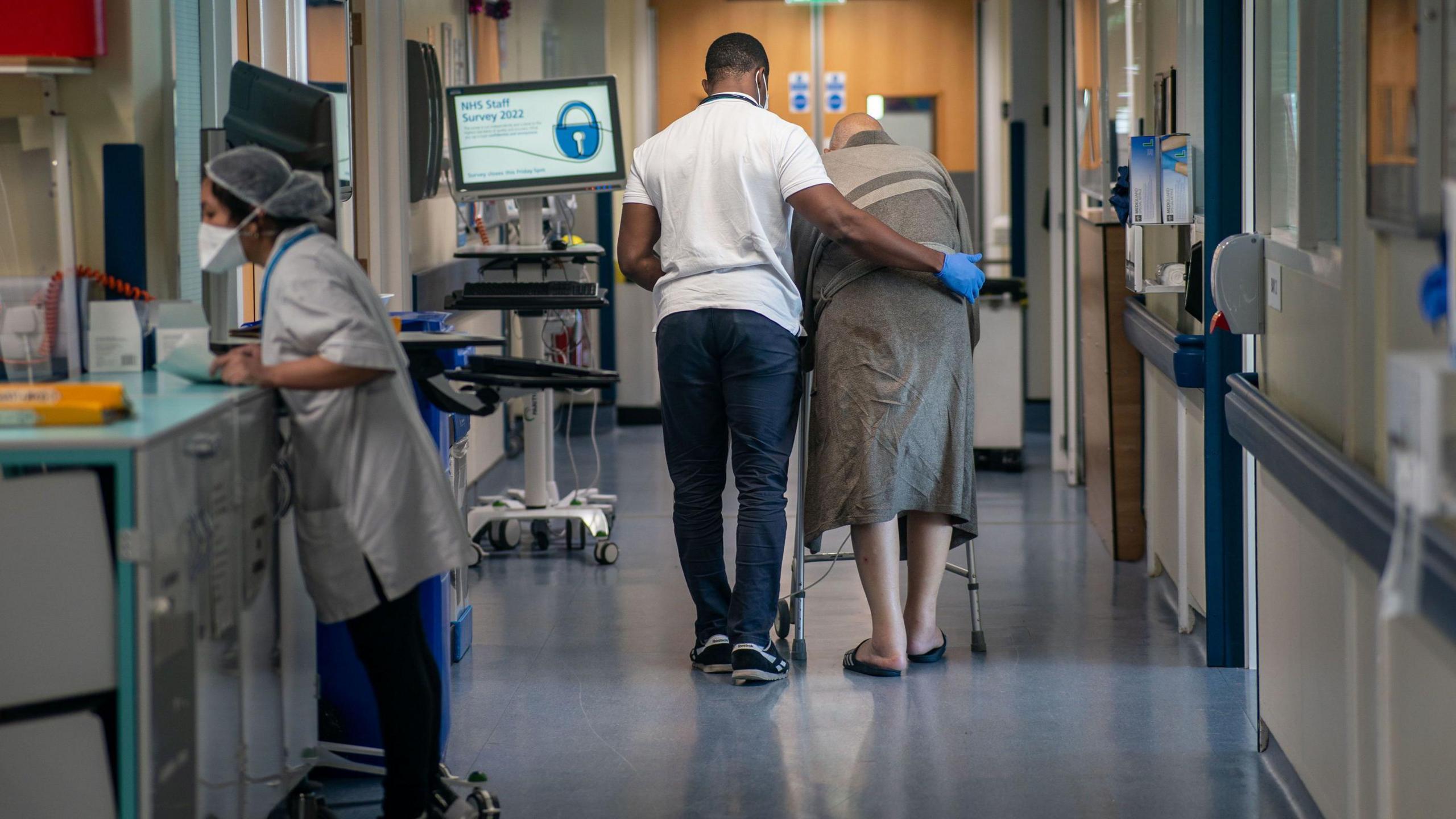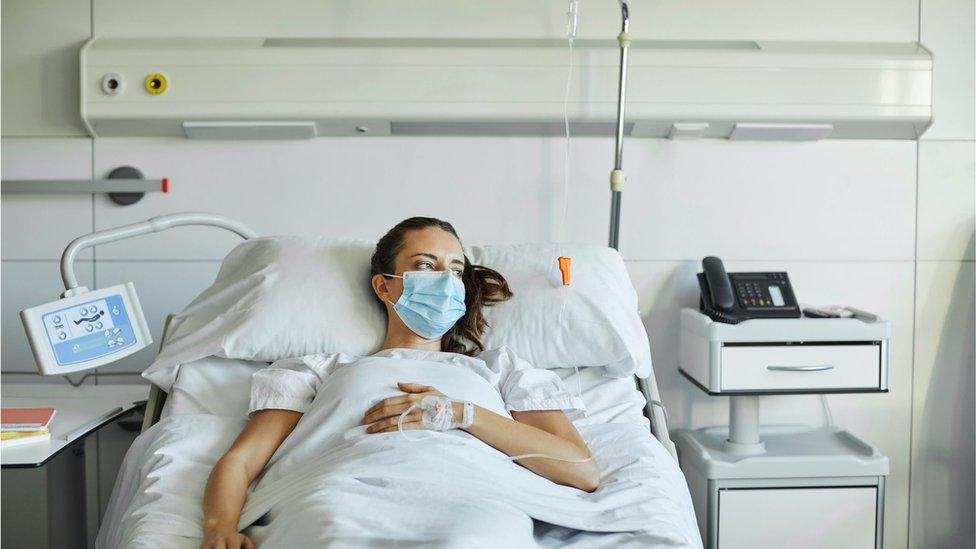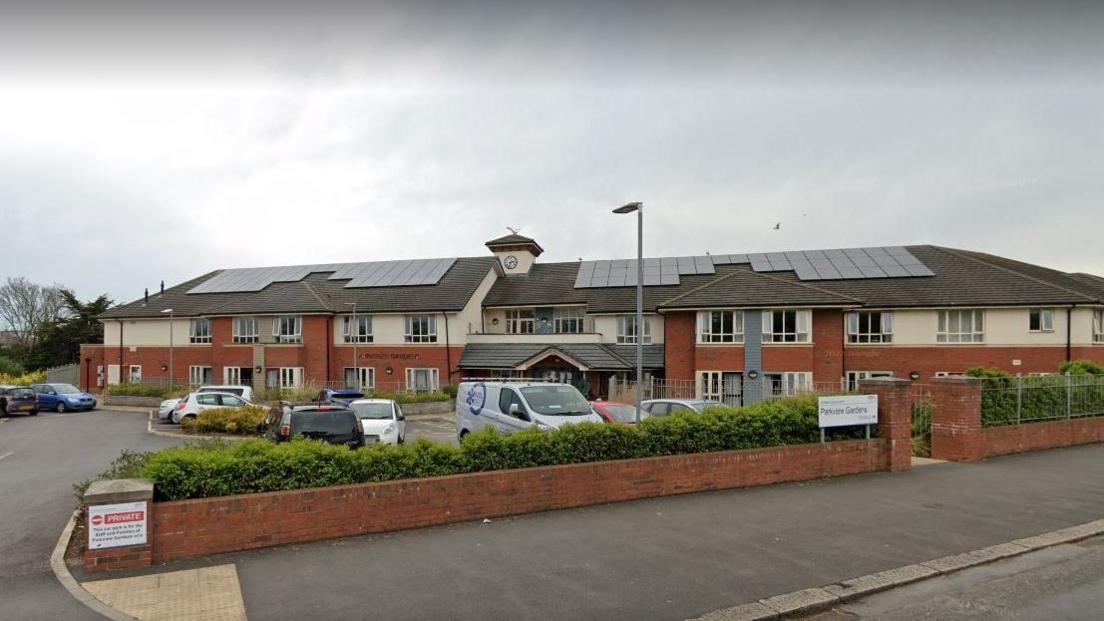How Lancashire is reducing hospital bed blocking

Delayed discharges can cause more issues for elderly patients
- Published
Bed blocking in hospitals by patients who are medically fit to leave has been cut by almost a third across two counties in the last two years, an NHS trust has said.
The number of so-called "additional bed days" in Lancashire and South Cumbria –the measure of how long patients stay in hospital after a discharge decision – fell from 2,665 days in November 2022 to 1,815 by the same point in November 2024.
Lancashire County Council's health and adult services scrutiny committee was told the reduction came from greater collaboration between the NHS and local authority social care teams.
Delays occur when practical support needed by a person to return to their own home is not arranged soon enough.
The Local Democracy Reporting Service reports that Heather Woodhouse, the integrated place leader for the North Lancashire place-based partnership, said much of the work to cut delays did not even cost more money.
"We've been able to put staff together, all looking at the same problem at the same time," Ms Woodhouse explained.
Paul Lee, the county council's director of adult care and provider services, said the Lancashire-wide workforce was being sent to "where the pressure points are".
Government guidance issued last year said "a high proportion" of patients on a hospital's discharge list should leave on the same day it was decided they did not need a ward.
Delayed discharges block patient flow through the hospital system often leading to congested accident and emergency departments.
They are also bad for the patients - even 10 days of bed rest in healthier older adults can lead to a loss of physical ability.
Pioneering work
Lancashire County Council had developed several services and strategies to ensure timely discharge of patients from hospital.
It pioneered the so-called "home first" principle eight years ago, whereby support is put in place to meet a person's immediate care needs on leaving hospital, with a more detailed assessment of their longer-term requirements back in their own home or another facility.
County Hall has also commissioned 116 rehabilitation beds in the community to provide short-term support to those ready to leave hospital, but not fit enough to return home.
The authority also gives one-off grants to unpaid carers to help overcome "small barriers" to them being able to care for a loved one for a short period after they leave hospital.
It also supports more than 13,000 people a year on "pathways" out of hospital returning home with a care package, transfer into a temporary community rehab facility or move into a care home.
Listen to the best of BBC Radio Lancashire on Sounds and follow BBC Lancashire on Facebook, external, X, external and Instagram, external. You can also send story ideas to northwest.newsonline@bbc.co.uk, external
Related topics
- Published7 September 2023

- Published11 October 2024
